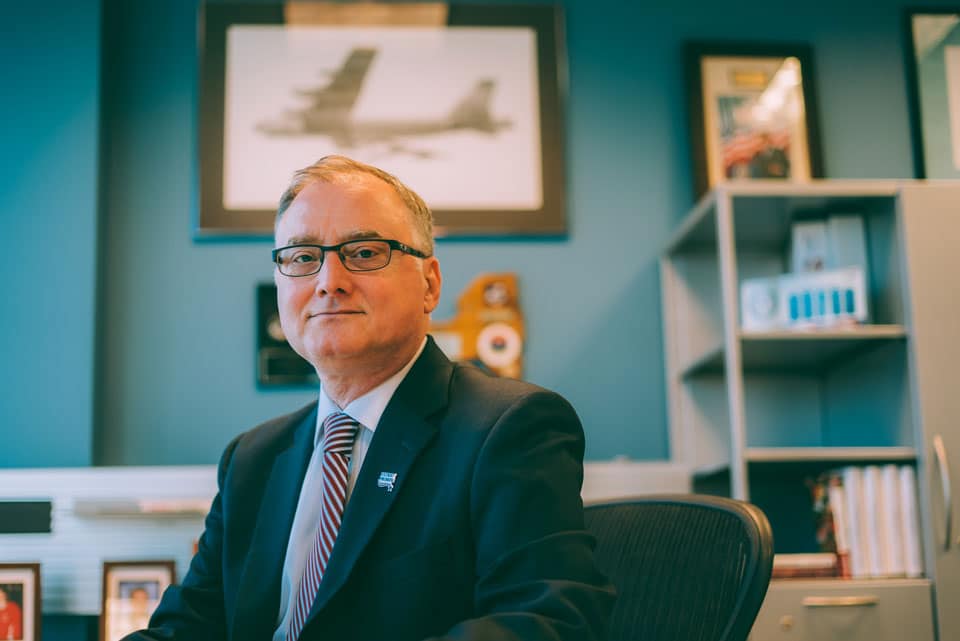Company CEOs and Military Veterans – Like Two Ships Passing in the Night

Imagine a world where struggling veterans could realize their potential and find their passion after leaving a successful stint in the service of our country. Not only that, but companies could have some of the best and brightest minds our country has to offer who are steeped in discipline, creative problem-solving, team-oriented, and trainable in almost any capability. Well, CEO meet veteran, and veteran meet CEO.
While it might be a clever analogy, these two ships passing are costing companies to lose out on coveted employees and veterans are not aligning with opportunities to showcase their raw capabilities. According to LinkedIn, there are roughly 200,000 veterans entering the workforce each year. Once hired, veterans are 39% more likely to get promoted than non-veterans. Veterans are more likely to stay longer with a company than their non-veteran counterparts. Additionally, the veteran community is 160% more likely to have a graduate-level degree than their non-veteran colleagues. The inability to connect CEOs and veterans is also hurting veterans. Veterans are 33% underemployed which is 15.6% higher than their non-veteran cohort.
I am the CEO of a medical device business located in Grand Rapids, MI. My company is a Service-Disabled Veteran-Owned Small Business (SDVOSB). In addition to manufacturing supplies for open heart surgery, knee implants, and devices to manage the temperature of the body, we also help companies sell their healthcare products to VA and military hospitals. Last year, we sold over $120,000,000 to the federal healthcare market. We are growing in triple digits each year. I need great people to run my business.
I interview every employee my company hires, no matter their position. So, I see how companies struggle in understanding veterans and how veterans are inept at communicating their awesome capabilities to potential employers.
The Problem
I have developed my interviewing techniques over 35 years in the industry. I have learned through some of my hiring mistakes and some of my homerun hires what truly makes for great hires. I don’t interview people for and am not interested in the skills they possess. Skills are short-term and fleeting capabilities in a changing workplace. Skills used today are often obsolete as a company grows and technology changes. I need talent. I need to see the drive, determination, aptitude, desire, intellectual curiosity, creativity, and problem-solving in a candidate. Even more so, I need the capacity in an individual to grow and perform beyond their current skill set. Where are those listed on a resume? They’re not.
I spend a lot of time teaching people how to interview. Some of my managers think they are looking for a particular skill and then they interview a candidate to see if they have those exact skills in their resume. Therein lies the rub. Many HR departments are looking to veterans for particular skills and not seeing what they need. According to a recent study published in Military.com, the top two reasons given for not hiring a veteran is “Skill Mismatch” and “Skill Translation.” At the same time, veterans are struggling to communicate how a skill like driving a tank, manning a machine gun, or navigating a B-52 would translate into helping a company achieve its objectives. These two sides are not going to come together in an interview. They are two ships passing in the night.
The Solution
We have changed our approach to dig specifically for those elements of talent I mentioned earlier. We ask questions that probe a candidate’s inner drive, values, and capacity. Questions like, “Give me an example of a time when you weren’t successful at first. How did you overcome those obstacles?” We look for clear examples in their past that demonstrate areas where they’ve made critically important decisions. We also want to get examples where they have more in the tank (so to speak). Can I see this person developing into a leader in the organization?
Now, when we look at veterans, we get a group of people that are in some cases literally battle-tested. They have dealt with situations requiring critical thinking and tremendous problem-solving skills under stressful situations. They are accustomed to discipline, which is a skill that is rare these days. Does a company want a team environment? Well, almost nothing gets done in the military by a person working alone. Veterans are steeped in teamwork, collaboration, and hard work.
What to do if you hire a veteran
Veterans come from a world of tremendous challenges, they receive a lot of training, and they get constant feedback. So, give them challenges, make sure you expose them to rigorous on-site and off-site training and education, and ensure they are given ongoing performance feedback. Invest in your veterans, they’re worth it.
Another recommendation I have is to work with your veteran to help them uncover their passions at work and help them develop into their full potential. Many veterans may not see in themselves the full capability they possess. Veterans are humble by nature, so they say things like, “I was just doing my job.” They need to be coaxed a little to help them flourish in this new environment.
Advice to my fellow veterans
You need to realize the strength you have inside of you as a result of the hard work you’ve done while serving in the military. Your best life is not behind you, it lies in front of you. This is a time in your life when you’re not going to be told what to do. You’re going to need to uncover things for yourself. Remember – getting into the military wasn’t easy, the training you received in the military wasn’t easy, and many of your missions weren’t easy. Well, you can’t expect things to be easy now that you’re out of the military. You are going to have to push, prod, and dig for any new opportunity. Let go of the military jargon because no one will understand it. Trade that all in for a new purpose and mission in the civilian world.
Conclusion
If there were two ships passing in the night between CEOs and veterans, then let’s rendezvous. CEOs work with your HR teams and managers to help them look for the talent innate in veterans. Veterans, adapt and adopt new habits that show off the God-given talents you’ve honed while in the military. Companies are in desperate need of highly talented people. Veterans are in desperate need of applying their capabilities, dreams, and passions to help our corporations succeed. This is a match made in heaven if the two sides can start to really communicate effectively.
Bob Taylor, CEO/Owner of Alliant Enterprises, graduated from Michigan State University in 1986 as a mechanical engineer and entered the Air Force as a B-52 navigator. He flew 11 combat missions during Operation Desert Storm and received the Air Force’s Air Medal, and then served as a KC-135 navigator, rising to the rank of Major. Over the past 30 years, Bob held positions in engineering, operations, marketing, sales, Chief Operating Officer, and eventually CEO in the medical device industry. In 2010, his company, Alliant Healthcare Products was the 10th fastest growing healthcare company in the United States. Last year Alliant Healthcare helped companies sell over $110 million of high-tech medical products to the VA and military hospitals.
Alliant is a verified Service-Disabled Veteran-Owned Small Business formed in 2002. The company was recently recognized by the Small Business Administration (SBA) Michigan chapter as the Veteran-Owned Small Business of the Year for 2019. As a veteran owner, he has been a staunch advocate for legislative initiatives supporting veteran-owned enterprises and has spoken on Capitol Hill several times.
Written by Bob Taylor, author of From Service to Success, New Mission, New Purpose, and a New Journey to a Great Life.
Have you read?
The Global Passport Index: The World’s Most Powerful Passports.
Countries With The Most Billionaires, 2023.
Top CEOs in Switzerland, 2023.
Biggest banks in the world, as measured by total assets, 2023.
The World’s Richest Self-Made Women, 2023.
Ready to join the CEOWORLD magazine Executive Council– Find out if you are eligible to apply.
Add CEOWORLD magazine to your Google News feed.
Follow CEOWORLD magazine headlines on: Google News, LinkedIn, Twitter, and Facebook.
Copyright 2024 The CEOWORLD magazine. All rights reserved. This material (and any extract from it) must not be copied, redistributed or placed on any website, without CEOWORLD magazine' prior written consent. For media queries, please contact: info@ceoworld.biz








